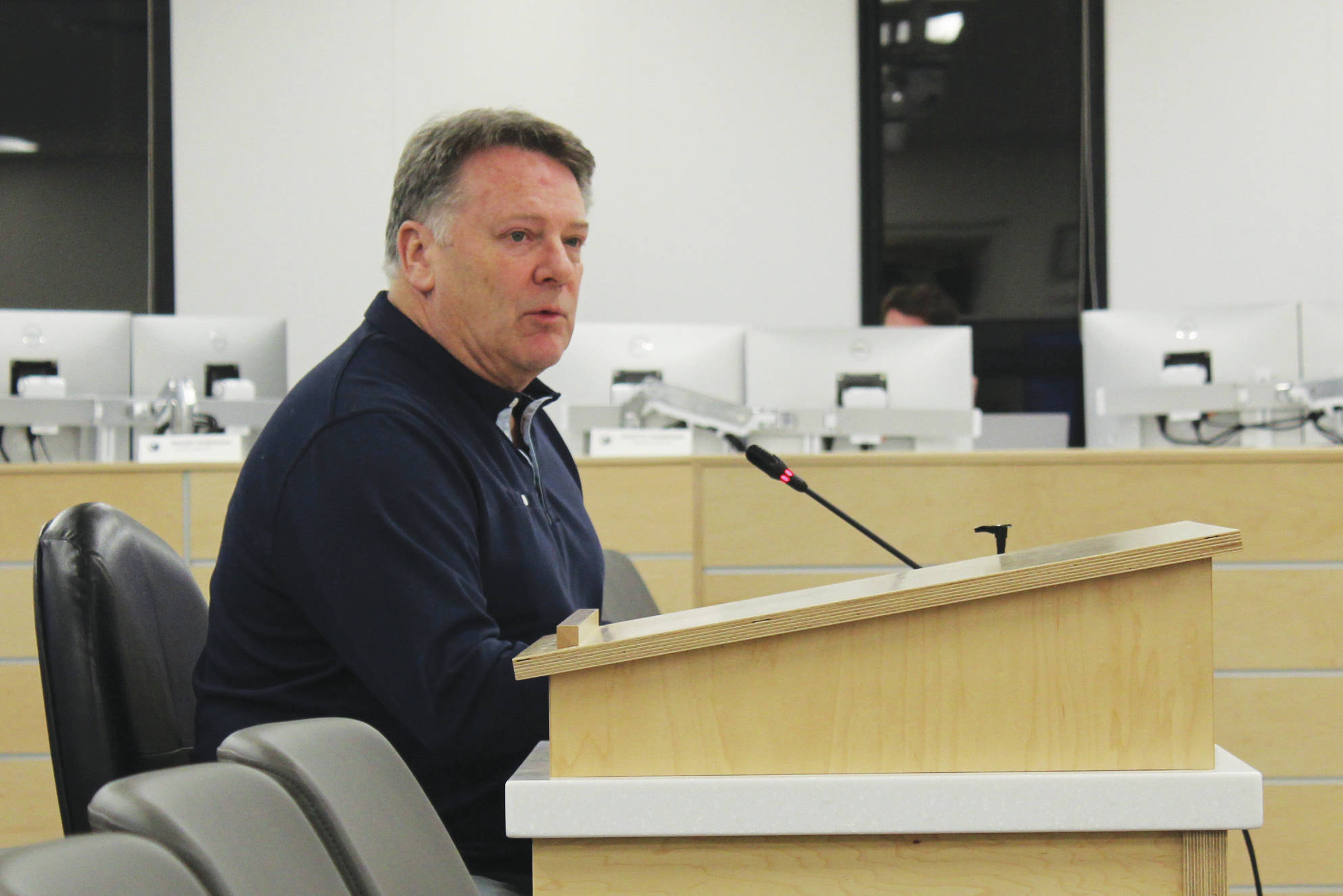The Kenai Peninsula Borough received more state and municipal CARES Act funds in response to the COVID-19 pandemic than almost anywhere else in Alaska, according to a newly released analysis by the Kenai Peninsula Economic Development District.
1,041 peninsula-based businesses received direct assistance from the State of Alaska’s AK CARES small business relief grants, for a total of just under $50 million in grant funds distributed to the area. This puts the peninsula second only to the Municipality of Anchorage — where 1,438 businesses received $73 million in state aid — in terms of the amount of AK CARES assistance received. In total, the State of Alaska distributed about $274 million in direct relief to small businesses, according to KPEDD’s report.
Tim Dillon, executive director of KPEDD, said Tuesday that he was surprised at the amount of assistance that peninsula-based businesses received — about 20% of the AK CARES funds went to the Kenai Peninsula, but the borough only accounts for about 7% of Alaska’s population. Dillon said that the unique nature of KPEDD in Alaska is partially what contributed to the high volume of peninsula businesses receiving assistance.
KPEDD is one of nine Alaska Regional Development Organizations — or ARDORs — that are required under state statute to “develop and implement regional economic development strategies or similar economic development plans,” according to Alaska’s Department of Commerce, Community and Economic Development.
KPEDD is the only ARDOR that functions as a privately operated nonprofit rather than as an agency within a borough or municipality. Because KPEDD didn’t need to do things normally required of government agencies, such as setting public notices or holding meetings about certain policy decisions, Dillon said, he and his team were able get to work more quickly than KPEDD’s counterparts across the state. Much of that work involved engaging with business owners directly, Dillon said, bringing them into the KPEDD offices and helping them with everything from sorting through paperwork to learning how to use a computer.
“Other areas were operating 8 a.m. to 5 p.m., Monday through Friday,” Dillon said Wednesday. “Meanwhile, Caitlin (Coreson) and I are getting calls directly to our cellphones at 10:30 at night on a Saturday from people needing our help with the paperwork.”
Dillon said another benefit of this approach was being able to build stronger relationships between business owners, KPEDD and local municipalities.
“I’ve gotten more ‘Merry Christmas’ and ‘Happy New Year’ texts this year than I ever have, and most of them are from people I met this year during this whole process,” Dillon said. “We even had a lady drop off some Christmas cookies for helping out her and her husband.”
A wide range of industries on the peninsula received support through the AK CARES small business grants, according to KPEDD’s data.
The commercial fishing industry received the most support, with 298 individual business grants totaling over $16 million in relief. Businesses in the “accommodations & food services” category received 142 grants for just under $6.6 million. Agriculture, forestry, fishing and hunting businesses received 44 grants for a total of about $1.6 million. Construction businesses received 20 grants for just over $1 million. Health care and social assistance businesses received 48 grants for a total of just over $2.5 million. Businesses in the professional, scientific and technical services industry received 41 grants for just under $1.9 million. Real estate businesses received 42 grants for just under $1.5 million and retail trade businesses received 80 grants for about $4.2 million.
In addition to the relief sent directly to small businesses, the State of Alaska distributed CARES Act funds to individual municipalities and boroughs, of which the Kenai Peninsula Borough and its incorporated municipalities received over $66 million.
These funds were used in a number of different ways, including additional small business grants distributed by the borough and each of the cities. All six municipalities as well as the borough-at-large set aside funds to provide direct financial relief for individual households, small businesses and nonprofits.
The funds were also used for purposes specific to each area’s needs. The borough, for example, set aside $2.6 million to build communications towers across the region and expand rural broadband access, and those towers are currently under construction.
The City of Soldotna provided $2.4 million in grants that local businesses could use specifically to expand their online presence, and the cities of Kenai and Soldotna both provided direct relief to the Kenai Peninsula Food Bank.
Reach reporter Brian Mazurek at bmazurek@peninsulaclarion.com.

